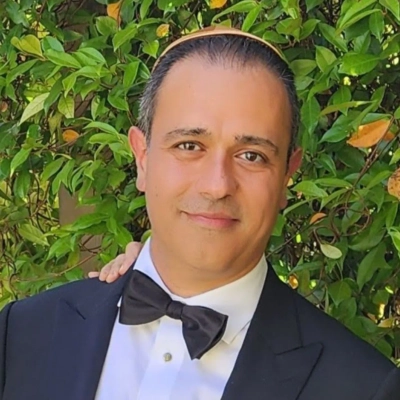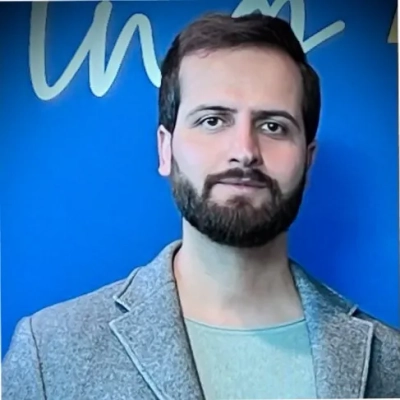10 Unconventional Interview Preparation Techniques That Help Candidates Stand Out
Discover proven interview preparation techniques that go beyond traditional advice, featuring insights from hiring managers and career development experts. These ten unconventional strategies help candidates demonstrate their unique value while creating memorable impressions during the interview process. Job seekers who implement these distinctive approaches consistently outperform competitors who rely solely on standard preparation methods.
Craft Stories Not Rehearsed Answers
I tell clients to prepare stories, not answers. Most candidates rehearse perfect responses to predictable questions like "Tell me about yourself" or "What's your biggest strength?" This approach often makes them sound scripted and forgettable.
Instead, I have clients identify three meaningful career moments that demonstrate their problem-solving abilities, leadership qualities, or adaptability in challenging situations. We then craft each experience into a concise, compelling story with clear context, specific actions taken, and measurable results achieved.
In interviews, stories resonate while rehearsed answers fade. Stories transform abstract skills into tangible proof of capabilities. When a candidate shares a relevant narrative about overcoming a challenge or driving results, they create a vivid mental image that stays with interviewers long after the conversation ends. This storytelling approach consistently helps my clients stand out because it showcases not just what they can do, but who they are as professionals.

Practice Under Real World Pressure
Being the founder and managing consultant at spectup I've coached many founders and executives on presenting themselves during investor or partner interviews, and one unconventional technique I always recommend is what I call "contextual rehearsal." Instead of memorizing perfect answers, I ask clients to simulate the mental environment of the actual conversation. One time, a client preparing for an investor interview practiced his pitch repeatedly in silence at his desk, and every time it sounded flawless. But during a mock session when we recreated the actual setup, background noise, limited time, interruptions, he froze. That's when I realized that the key isn't practicing content; it's practicing adaptability. Contextual rehearsal trains you to think clearly under real-world pressure rather than relying on rehearsed lines.
The process is simple but transformative. I encourage clients to change locations, vary tones, and even have someone deliberately ask off-script questions during practice. This forces spontaneous, authentic responses, which are far more compelling than robotic precision. I remember another founder who practiced in the car during commutes to simulate unpredictability, and his final investor call felt effortless because he had already trained his brain to stay calm amid distractions. At spectup, we use this approach to help clients embody confidence rather than perform it. It differs from standard advice because most preparation focuses on memorization and presentation polish, whereas contextual rehearsal builds presence and mental agility. It helps candidates convey self-awareness and composure, qualities investors and hiring managers instantly recognize as leadership traits. Over time, I've seen this technique consistently elevate candidates who might not have the flashiest resumes but who communicate with grounded conviction. It's a reminder that preparation isn't about perfection; it's about conditioning yourself to remain authentic and strategic when things don't go exactly as planned.

Record Mock Interviews For Detailed Feedback
Record a Mock Interview with an AI Voice or Video Model for analysis.
Film yourself doing a mock interview with chatGPT AI voice or video. Many times when you watch the recording back or send it to AI for feedback, you can notice subtle issues that have a huge impact on getting the job and presenting yourself with confidence:
- Facial expressions: Do you look confident, calm, or nervous? Any filler gestures or micro-expressions that distract?
- Voice and pacing: Are you too fast, monotone, or hesitant? Do you pause effectively before big points?
- Content flow: Did you answer questions directly, or did you ramble?
Also, make sure in the recording that you are asking lots of questions about the role as well, asking questions is a good way to show your interest in the company and build rapport.

Form a Problem Hypothesis Before Interviewing
Most candidates prepare for an interview by focusing inward. They polish their resume, rehearse their personal story, and practice answering questions about their past accomplishments using frameworks like the STAR method. While this preparation is necessary, it's rarely sufficient. It positions the interview as a backward-looking audit of your career, where the interviewer is left with the burden of connecting your past skills to their future needs. The conversation becomes a test of your ability to sell yourself, rather than a demonstration of how you would actually perform in the role.
The most effective technique I've seen is to flip this script entirely. Instead of spending all your time on your own story, dedicate the majority of your prep to forming a "problem hypothesis." Dig deep into the company, the team, and the role to form an educated guess about the specific challenges the hiring manager is facing right now. What project is stalled? What metric are they trying to move? What pain point was the final straw that led them to open this position? This approach shifts your focus from being an applicant trying to prove your worth to a consultant trying to solve a problem.
I once coached a product manager who was interviewing for a role at a fast-growing fintech company. Instead of just talking about her experience launching features, she started the conversation by saying, "My impression from the outside is that your user base is growing much faster than your customer support capacity, and the team is likely struggling with ticket volume. I suspect this role is key to building features that help users self-serve." The hiring manager leaned forward, visibly engaged, and said, "That's *exactly* it. How would you start?" The entire dynamic shifted—it was no longer an audition, but the beginning of a working relationship.
Build a Personal Case Study Project
One unconventional technique I recommend is building a personal case study rather than memorising interview answers. I ask clients to pick one real project they've worked on and break it down into three parts: what the problem was, how they approached it, and what impact it created. Then we shape that into a short, story-like narrative that they can adapt to different questions. This approach shifts the focus from rehearsed lines to real proof of thinking and execution. It helps candidates sound grounded and credible, not over-prepared. Interviewers remember stories, not bullet points, and that's what makes this method stand out every time.

Connect Authentically With Company Mission
One interview preparation technique I consistently recommend is for candidates to research and genuinely connect with the company's mission before walking into the interview room. Instead of focusing exclusively on rehearsing answers about skills and experience, spend time understanding why the company's work matters in the broader context and how you personally connect to that purpose. When interviewing candidates at Aitherapy, we look beyond technical sales capabilities to find people who truly understand and care about our goal of making mental health support more accessible through AI. This approach differs from standard advice that typically emphasizes polishing answers to common interview questions or highlighting achievements. Candidates who can authentically articulate why they care about our mission and demonstrate how their values align with ours consistently stand out in our hiring process. This genuine connection cannot be faked and creates a memorable impression that technical preparation alone simply cannot achieve.

Research Through Customer Reviews
A technique I've found surprisingly effective is researching the company through its customer reviews instead of just its website or LinkedIn. Reading what real customers say—both the good and the bad—gives you insight into what the company values, how it handles challenges, and how employees actually make an impact day-to-day.
When I was interviewing early in my career, I used that approach to bring up specific customer experiences in my answers. It showed that I understood not just what the company does, but how it's perceived in the real world. That level of awareness stands out because most candidates only repeat what's on the "About Us" page. It proves you've done your homework beyond the surface.

Adopt Reverse Role Rehearsal Technique
Hey Consultant Magazine,
One unconventional interview preparation technique I recommend is "reverse role rehearsal." Instead of just practicing answers, I ask candidates to prepare three questions they would ask if they were the hiring manager. This forces them to think from the employer's perspective, not their own.
It changes everything. Candidates begin to understand the business problem behind the role, the company's priorities, and how their experience actually solves those challenges. When they walk into the interview, they speak in terms of value contribution rather than self-promotion, which immediately differentiates them from the majority who focus on rehearsed strengths and weaknesses.
We've used this method with candidates across healthcare, tech, and consulting, and it consistently produces stronger engagement and more confident communication. It's a mindset shift from "please hire me" to "here's how I can help you win," and hiring managers notice that difference instantly.
Aamer Jarg
Director, Talent Shark
www.talentshark.ae

Conduct Pre-Interview Operational Audit
The typical "interview preparation technique" focuses on rehearsing abstract answers. The problem is that it fails to demonstrate verifiable competence. The unconventional preparation technique I recommend consistently helps candidates stand out by demanding they master the financial language of the company's biggest risk.
This approach differs from standard advice because it requires the candidate to perform a Pre-Interview Operational Audit. Stop practicing behavioral answers. Instead, the candidate must spend their preparation time isolating the single, most expensive, recurring operational flaw that their target company faces. This involves auditing the company's public warranty claims, supply chain vulnerabilities, or recurring part failures for heavy duty trucks in the news.
The goal is to enter the interview not as a job seeker, but as a risk mitigation specialist. The candidate must prepare to quantify the financial liability of that flaw and present a proposal detailing how their specific skill set—their expert fitment support knowledge or their mastery of OEM Cummins parts logistics—will solve that flaw and save the company money.
This works because it forces the interview conversation to shift from abstract competence to immediate, quantifiable value. The candidate proves their worth by demonstrating they understand the financial consequence of a flawed process and possess the specialized knowledge to enforce a zero-error system. They secure the job by demonstrating that their hire is the single best financial defense against a major operational disaster.

Visualize Yourself Already In Role
One unconventional interview prep technique I recommend is training the subconscious through visualization and self-dialogue. Imagine yourself in the role you want—see it, feel it, and speak your answers out loud as if you're already there. If you stumble, pause and explain to yourself what you're trying to convey.
This goes deeper than memorization—it builds confidence and fluency at the subconscious level. Standard advice focuses on rehearsing answers; this method focuses on embodying the mindset of the person who already earned the job.
By the time you walk into the interview, your tone, posture, and clarity reflect someone who belongs—not someone hoping to.
—Pouyan Golshani, MD | Interventional Radiologist & Founder, GigHz and Guide.MD | https://gighz.com



